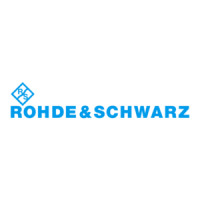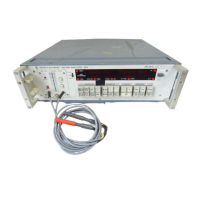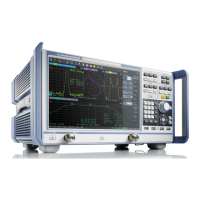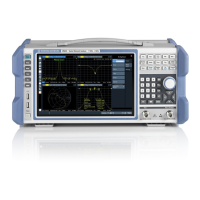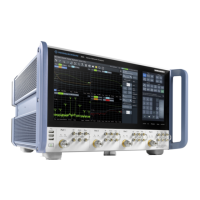System Overview
R&S
®
ZVA
77Quick Start Guide 1145.1090.62 ─ 10
Examples:
●
Z
11
is the input impedance of a 2-port DUT that is terminated at its output with the
reference impedance Z
0
(matched-circuit impedance measured in a forward reflec-
tion measurement).
●
The extension of the impedances to more ports and mixed mode measurements is
analogous to S-parameters. Z
dd44
is the differential mode input impedance at port 4
of a DUT that is terminated at its other ports with the reference impedance Z
0
.
You can also read the converted impedances in a reflection coefficient measurement
from the Smith chart.
3.3.2.2 Z-Parameters
The Z-parameters describe the impedances of a DUT with open output ports (I = 0). The
analyzer provides the full set of Z-parameters including the transfer impedances (i.e. the
complete nxn Z-matrix for an n port DUT).
This means that Z-parameters can be used as an alternative to S-parameters (or Y-
parameters) in order to completely characterize a linear n-port network.
3.3.2.3 2-Port Z-Parameters
In analogy to S-parameters, Z-parameters are expressed as Z
<out>< in>
, where <out> and
<in> denote the output and input port numbers of the DUT.
The Z-parameters for a two-port are based on a circuit model that can be expressed with
two linear equations:
2221212
2121111
IZIZV
IZIZV
Meaning of Z-parameters
The four 2-port open-circuit Z-parameters can be interpreted as follows:
●
Z
11
is the input impedance, defined as the ratio of the voltage V
1
to the current I
1
,
measured at port 1 (forward measurement with open output, I
2
= 0).
●
Z
21
is the forward transfer impedance, defined as the ratio of the voltage V
2
to the
current I
1
(forward measurement with open output, I
2
= 0).
Measured Quantities
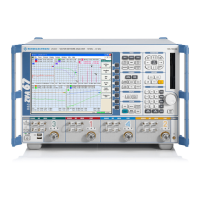
